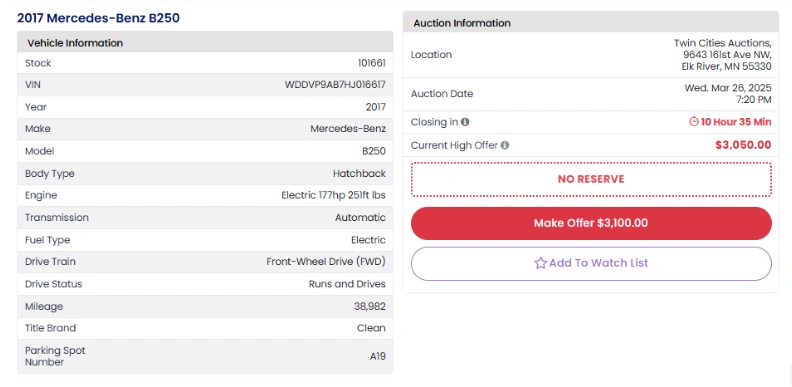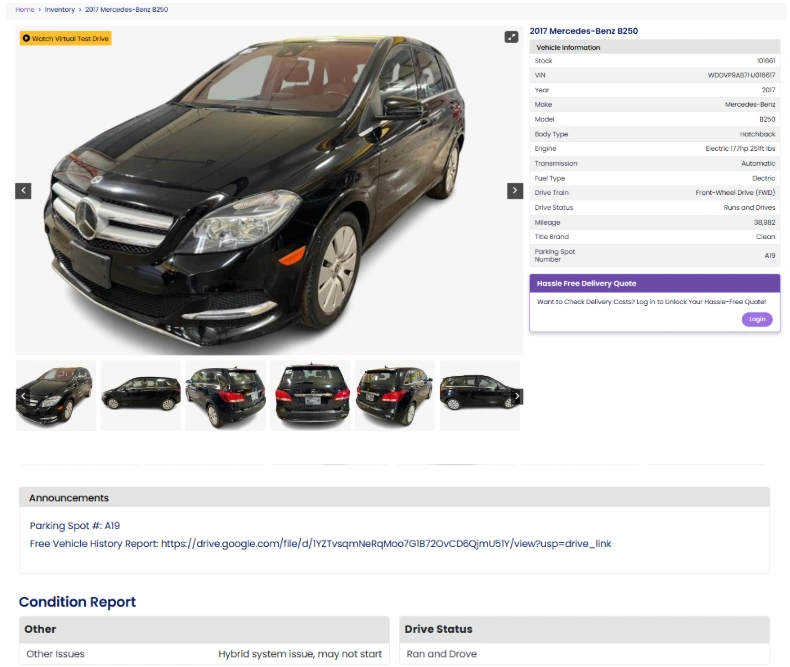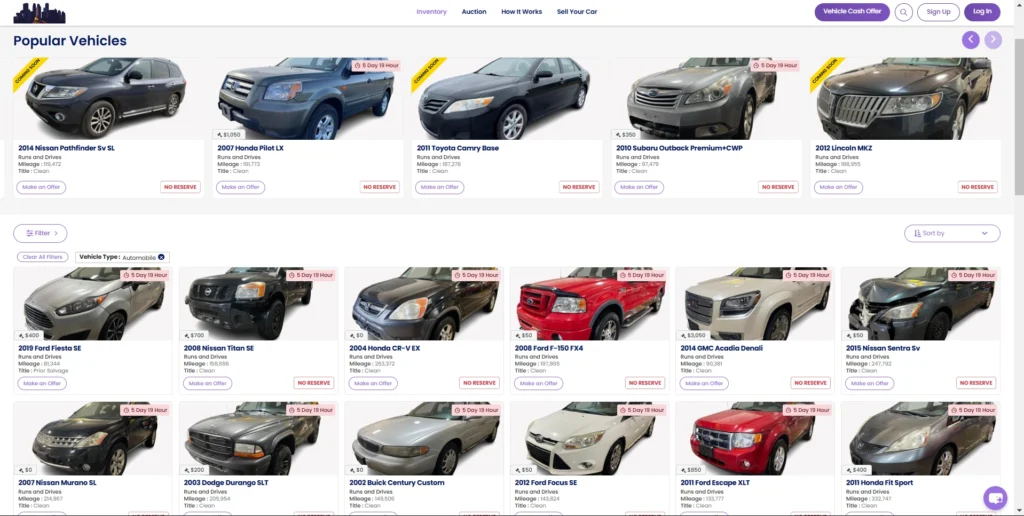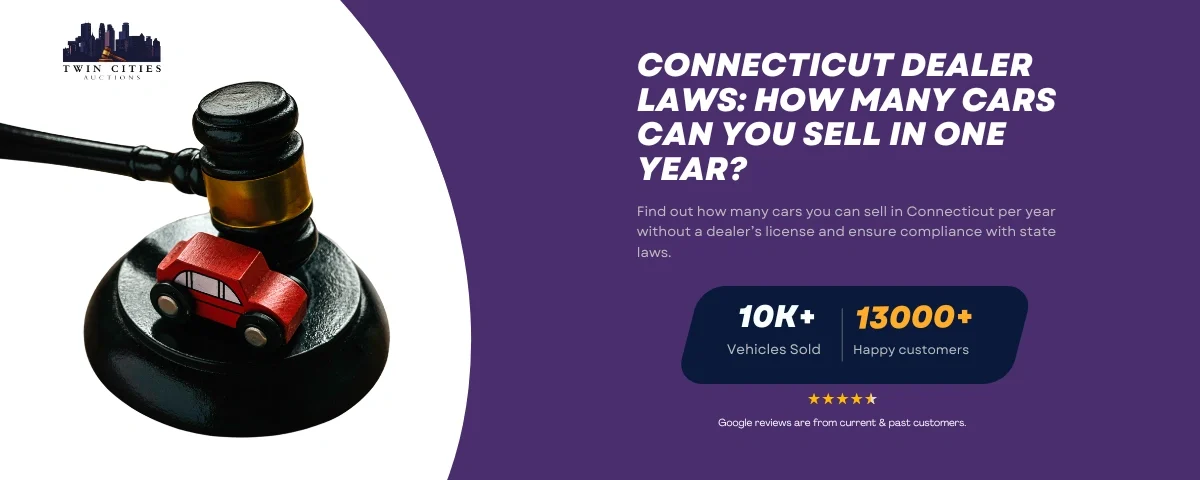Are you curious about the limits on car sales in Connecticut and what steps you need to take if you want to expand your vehicle business? This blog dives into the legal framework and practical insights surrounding Connecticut Dealer Laws, including the strict cap of 4 vehicles per year for unlicensed sellers and the advantages of obtaining a dealer license for unlimited sales.
Discover clear guidance, real data, and actionable steps to navigate this complex industry while learning why auctions, especially with Twin Cities Auctions in MN, offer a competitive alternative.
The following key takeaways provide a quick summary of what you will learn: unlicensed sellers are limited to selling 4 vehicles annually; licensed dealers enjoy unlimited sales when they meet the state’s requirements; and vehicle auctions offer an efficient way to move inventory fast and cost-effectively.

Key Takeaways
- Connecticut law permits unlicensed individuals to sell a maximum of 4 vehicles per calendar year.
- Licensed dealers who meet all regulatory requirements can sell an unlimited number of cars.
- Dealer licensing involves strict documentation, location criteria, bonding or insurance, and adherence to consumer protection measures.
- Auctions help sellers move inventory quickly while offering buyers market-driven prices and transparent processes.
Understanding Connecticut Dealer Laws
Overview of Regulations
Connecticut has established a clear legal framework to distinguish between casual vehicle sellers and professional dealers. According to the Connecticut Department of Motor Vehicles (DMV), unlicensed individuals are permitted to sell up to four vehicles per calendar year.
This limitation helps prevent hobby sellers from unintentionally engaging in business-level transactions without the appropriate credentials.
Once individuals exceed this threshold, they must obtain a dealer license through the Connecticut DMV. Licensed dealers benefit from increased flexibility and the removal of annual sales caps, provided they meet the state’s stringent requirements related to business location, record keeping, and consumer protection standards.
Consumer Protection Measures
The law ensures that every transaction adheres to strict recordkeeping and disclosure standards to safeguard both the seller and buyer.
These rules cover advertising, warranty disclosures, and proper documentation, thereby ensuring that consumers receive clear and honest information about every vehicle purchase.
Dealer Licensing Requirements in Connecticut
Steps for Licensing
Securing a dealer license in Connecticut involves several steps, including the collection of necessary documents, proof of a proper business location, and meeting financial criteria. Applicants must complete an application with the Connecticut Department of Motor Vehicles and pass background checks and training sessions on consumer protection practices.
Benefits of Licensing
A dealer license lifts the 4-vehicle cap and provides access to wholesale pricing, opportunity to flip vehicles for profit, professional networks, and additional industry resources. It builds trust among consumers and offers legal safeguards that support a sustainable business model in the competitive world of vehicle sales.
Licensed vs. Unlicensed Vehicle Sales
| Aspect | Unlicensed Seller (Up to 4 Vehicles/Year) | Licensed Dealer (Unlimited Sales) |
| Sales Limit | Maximum of 4 vehicles per calendar year | No statutory cap on vehicle sales |
| Licensing Requirements | Limited to basic state law compliance | In-depth application, bonding, and inspection requirements |
| Access to Wholesale Pricing | Restricted access | Eligibility for dealer-specific pricing |
| Consumer Protection | Basic disclosure mandates | Comprehensive standards and ongoing audits |
| Recordkeeping | Informal documentation | Formal recordkeeping and regular audits |
Market Insights on Connecticut Car Sales
Market Trends
Connecticut’s vehicle market continues to evolve with steady growth in both new and used car sales. A robust economy and consumer confidence have contributed to a consistent rise in transactions, emphasizing the importance of adapting to market conditions for sellers and buyers alike.
Sales Data Overview
Recent data reflects an upward trend in vehicle sales over the past several years, highlighting increased consumer demand and a dynamic market environment.
This ongoing growth signals opportunities for those prepared to meet regulatory standards and capitalize on consumer interest.
Vehicle Sales Trends in Connecticut
| Year | Number of Vehicles Sold | Percentage Growth |
| 2018 | 3,500 | 2.5% |
| 2019 | 3,650 | 4.3% |
| 2020 | 3,800 | 4.1% |
| 2021 | 4,000 | 5.3% |
| 2022 | 4,250 | 6.2% |
Why Auctions Are a Smart Choice for Vehicle Sales
Selling cars at an auction for resale is becoming an increasingly popular option for dealers and private sellers alike. Auctions, like Twin Cities Auctions, offer a streamlined and competitive way to buy and sell cars.
Advantages of Using Twin Cities Auctions
- Competitive Pricing: Auctions like Twin Cities Auctions allow sellers to set a competitive price and reach a broad pool of buyers.

- Transparency: Every vehicle listed at the auction comes with detailed information, making the buying process transparent for both parties.

- Wide Inventory: Auctions have a large variety of vehicles available

- Quick Turnaround: Auctions offer fast and efficient sales, helping sellers move inventory quickly.
Additional Benefits of Vehicle Auctions
Efficiency Gains
Auctions help reduce the time vehicles spend on the lot, which in turn improves cash flow and minimizes holding costs.
Sellers can quickly transition from inventory buildup to cash transactions, streamlining their operations in a competitive market.
Transparent Pricing
The bidding process at auctions offers a clear view of market demand and pricing, making it easier for both sellers and buyers to agree on fair market value.
This transparency helps in building confidence and ensuring that every party is satisfied with the outcome.
Vehicle Auctions vs. Traditional Dealership Sales
| Aspect | Vehicle Auctions | Traditional Dealership Sales |
| Sales Cycle | Rapid, often completed within hours | Typically a longer process due to extended negotiations |
| Price Determination | Dynamic and market-driven through competitive bidding | Fixed or negotiated prices that may lag behind current trends |
| Inventory Turnover | High turnover with lower holding costs | Slower movement, leading to higher inventory costs |
| Transparency | Regulated and clear auction procedures | Varies by dealership, sometimes less transparent |
| Buyer Engagement | Interactive and competitive bidding environment | One-on-one negotiations, which can prolong decision-making |
Conclusion
Understanding Connecticut Dealer Laws is crucial for anyone involved in vehicle sales. With a strict limit of 4 vehicles per year for unlicensed sellers and the option to remove that limit through proper licensing, you have clear guidelines to follow.
Whether you choose to operate as a licensed dealer or leverage the rapid turnover of vehicle auctions, knowing the rules is the first step toward a successful business venture.
As the automotive market continues to evolve, staying informed about both legal requirements and market trends will help you make decisions that lead to better customer satisfaction and improved profitability.
Whether through traditional sales channels or innovative auction platforms like Twin Cities Auctions, aligning your strategy with these insights can help ensure your long-term success in the industry.
Your Next Car is Just a Click Away at Twin Cities Auctions!
Twin Cities Auctions brings the excitement of car auctions directly to your screen. No dealer license? No problem! Our online platform is open to the public, offering a wide range of vehicles to suit all tastes and budgets.
Whether you are an automotive enthusiast or a first-time buyer, you’ll find an impressive variety of vehicles that cater to all tastes and budgets. From reliable family sedans and eco-friendly hybrids to high-performance cars and premium SUVs, our listings are curated to ensure quality and diversity.
Enjoy a hassle-free bidding process and secure your perfect match from our extensive lineup. Don’t miss out—your next car is just a click away at Twin Cities Auctions!
Looking for more options? Explore our comprehensive list of all available car auctions across the United States. Your next deal might be just a click away!
FAQ
What is the maximum number of vehicles an unlicensed seller can sell in Connecticut in one year?
Unlicensed sellers in Connecticut are allowed to sell a maximum of 4 vehicles within a calendar year. This limit is strictly enforced to prevent unauthorized business activities.
How does obtaining a dealer license benefit vehicle sellers in Connecticut?
Acquiring a dealer license not only removes the 4-vehicle cap but also grants access to wholesale pricing, industry networks, and additional legal protections that enhance overall business credibility.
What are the key steps required to obtain a dealer license in Connecticut?
The process involves preparing necessary documentation, securing a compliant business location, completing background checks and training, and obtaining the required bonding or insurance as stipulated by state regulations.
How do Connecticut Dealer Laws protect consumers?
These laws enforce strict disclosure and recordkeeping standards that ensure buyers receive accurate and comprehensive information about each vehicle, reducing the risk of fraud or misrepresentation.
What advantages do vehicle auctions offer over traditional dealership sales?
Auctions provide a faster sales cycle, market-based pricing through competitive bidding, and a transparent process that often results in a fairer transaction for both sellers and buyers.
What makes Twin Cities Auctions a preferred option for vehicle sales in Minnesota?
Twin Cities Auctions stand out due to their diverse inventory, competitive auction pricing, clear and regulated processes, and a convenient location that facilitates easy transactions for local buyers and sellers.
Is it possible for an unlicensed seller to transition into a licensed dealer in Connecticut?
Yes, an unlicensed seller can transition by meeting the state’s licensing requirements, which include documentation, business location standards, and bonding or insurance requirements.
What market trends currently influence vehicle sales in Connecticut?
Recent trends indicate a steady increase in vehicle sales driven by strong consumer confidence, economic stability, and a rising demand for both new and used vehicles.
Source Links
https://portal.ct.gov/DMV
https://www.ct.gov
https://www.nhtsa.gov
https://www.edmunds.com
https://www.autotrader.com
https://www.cars.com
https://www.nada.org


